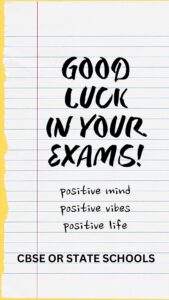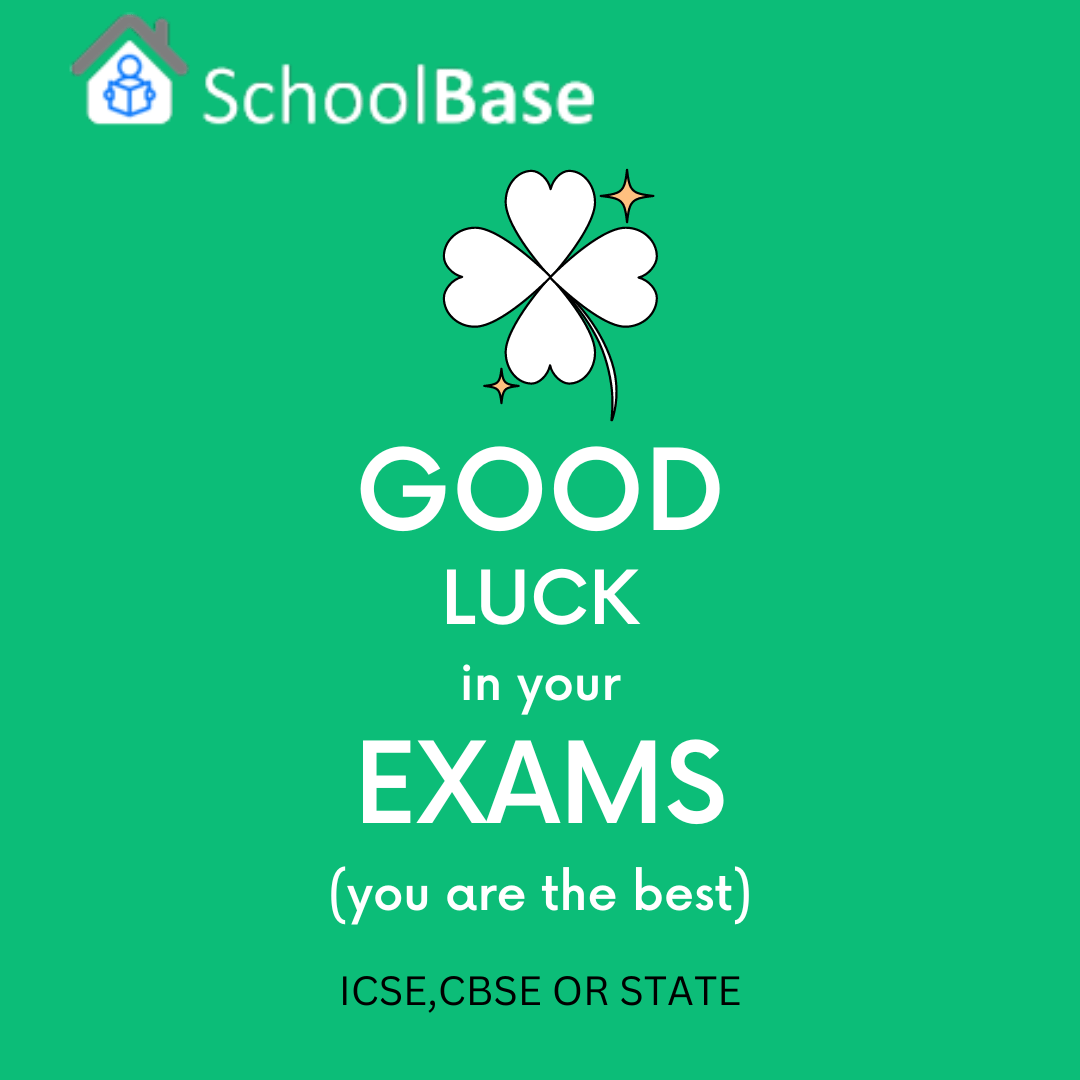In this article, we bring certain effective study techniques for board exams, regardless of whether you are preparing for a state board or CBSE exam.Board exams, whether conducted by state boards or the Central Board of Secondary Education (CBSE), are a significant milestone in a student’s academic journey.
The pressure and anxiety associated with any board exam preparation can be overwhelming, but with the right approach and strategies, you can not only survive but thrive in your board exams.
State Board vs. CBSE

Before diving into study strategies, it’s essential to understand the differences between state board exams and CBSE exams.
Each board has its own curriculum, question paper pattern, and evaluation process. Here’s a brief overview:
State Board Exams:
- Curriculum: State boards have the autonomy to design their own curriculum, which may vary from one state to another.
- Question Paper Pattern: The question paper format is determined by the respective state board, and it can differ significantly from CBSE.
- Evaluation: Evaluation methods vary among state boards, and some may place a greater emphasis on subjective assessments.
CBSE Exams:
- Curriculum: CBSE follows a standardized curriculum, ensuring consistency across the country.
- Question Paper Pattern: CBSE question papers have a consistent format, with a focus on critical thinking and problem-solving.
- Evaluation: CBSE employs a more uniform evaluation system, which includes external examiners.
Now that we’ve established the differences, let’s explore some effective study techniques to prepare effectively for both types of board exams.
- Start Early- One commonality between state and CBSE exams is the need to start your preparation early.
- Procrastination is your worst enemy when it comes to board exams.
- Begin your studies at the beginning of the academic year, ensuring you have ample time to cover the entire syllabus.
- Create a Study Schedule- To effectively manage your study time, create a study schedule or timetable.
- Allocate specific time slots for each subject, ensuring that you distribute your study hours evenly across all subjects.
- This approach helps prevent last-minute cramming.
- Understand the Board Exam Syllabus- For state board exams, familiarize yourself with the specific syllabus outlined by your state board. For CBSE exams, study the NCERT textbooks, which are the foundation for the CBSE curriculum.
- Understanding the syllabus is essential to know what topics to focus on and to avoid studying unnecessary material.
- Use Quality Study Material for board exams- Invest in quality study materials, which can include textbooks, reference books, and online resources.
- For CBSE exams, the NCERT books are highly recommended, while state board students should refer to textbooks recommended by their board.
- Take Notes- Taking effective notes while studying is crucial. Summarize important concepts, formulas, and key points.
- These notes will be valuable during your revision phase.
- Practice Regularly- Both state and CBSE exams require regular practice.
- Solve previous years’ question papers, sample papers, and exercises from your textbooks.
- This practice will help you understand the exam pattern and improve your problem-solving skills.
- Seek Guidance- If you’re unsure about a particular topic or concept, don’t hesitate to seek help.
- Ask your teachers, classmates, or even consider hiring a tutor if needed.
- Clarifying your doubts promptly is essential for a strong foundation.
- Use Technology Wisely- Leverage technology to aid your studies.
- Educational apps, online tutorials, and digital resources can complement your traditional study methods.
- However, use technology judiciously and avoid distractions.
- Maintain a Healthy Lifestyle during board exams- A balanced diet, regular exercise, and adequate sleep are crucial for maintaining physical and mental health.
- A healthy lifestyle will help you stay focused and alert during your preparation.
- Take Breaks- Don’t forget to take short breaks during your study sessions.
- These breaks can help refresh your mind and improve concentration.
- However, ensure that your breaks don’t turn into procrastination.
- Revision is Key- Regular revision is the key to retaining information.
- Plan your revision schedule and review the topics you’ve studied to reinforce your understanding.
- Practice Time Management- Managing your time during the exam is vital.
- Practice answering questions within the time limits to ensure you complete the paper without rushing.
-
Board exam stress management
– Maintain a positive mindset throughout your preparation.
- Believe in your abilities and stay confident.
- Negative thoughts can hinder your performance.
- Mock Tests for board exams- Taking mock tests is a great way to assess your progress.
- Simulate exam conditions and time yourself to see how well you perform under pressure.
- Analyze Your Mistakes- After each mock test or practice session, analyze your mistakes.
- Identify weak areas and work on improving them.
-
Stay Calm During the Exam–
On the day of the exam, stay calm and focused.
- Read the instructions carefully, manage your time wisely, and answer the questions you are confident about first.
Whether you are preparing for state board exams or CBSE exams, the key to success lies in your approach to studying. Start early, create a study schedule, and use quality study materials.
Regular practice, revision, and seeking guidance when needed are also vital components of your preparation.
Remember to maintain a healthy lifestyle, stay positive, and use technology wisely.
By following these strategies, you can increase your chances of excelling in your board exams, regardless of whether you belong to a state board or CBSE. Good luck!
